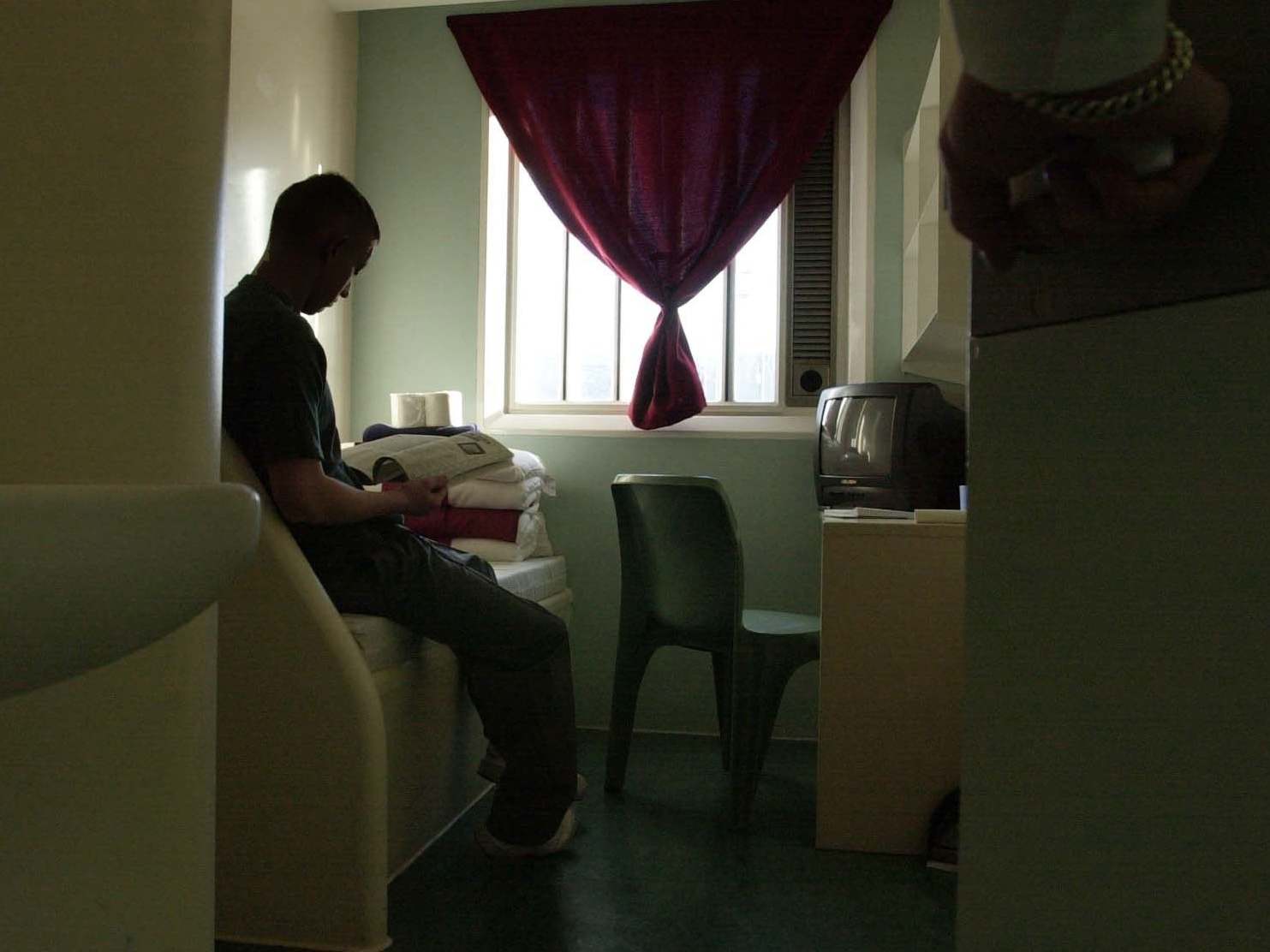Children in prison twice as likely to have special needs, figures show
Exclusive: Experts warn sending youngsters with special educational needs to jail ‘only compounds damage caused’, condemning ‘failure’ of services to provide for children in community

Your support helps us to tell the story
From reproductive rights to climate change to Big Tech, The Independent is on the ground when the story is developing. Whether it's investigating the financials of Elon Musk's pro-Trump PAC or producing our latest documentary, 'The A Word', which shines a light on the American women fighting for reproductive rights, we know how important it is to parse out the facts from the messaging.
At such a critical moment in US history, we need reporters on the ground. Your donation allows us to keep sending journalists to speak to both sides of the story.
The Independent is trusted by Americans across the entire political spectrum. And unlike many other quality news outlets, we choose not to lock Americans out of our reporting and analysis with paywalls. We believe quality journalism should be available to everyone, paid for by those who can afford it.
Your support makes all the difference.Children in prison are twice as likely to have special educational needs as those in the general population, new figures reveal, prompting concern that vulnerable teenagers are being let down by mainstream services.
Data from the Ministry of Justice (MoJ) reveals 30 per cent of children who entered custody over 2018-19 were assessed as having special educational needs or disabilities. Separate government data shows that less than 15 per cent of children nationally fall into this category.
Experts said this discrepancy highlighted the “failure” of educational and other services to properly provide for such children in the community, and that sending them to “increasingly chaotic and violent” jails only compounded the damage caused.
Special educational needs refers to children with learning problems or disabilities that make it harder for them to learn than most youngsters the same age, leading to difficulties with schoolwork, communication or behaviour.
The MoJ said an assessment is carried out for all children and young people on entry into custody, allowing for early identification of needs and requirements to support their care.
But MPs and charities said placing these children in institutions designed for punishment was “no solution”, and that too often instead of receiving skilled support they were being “locked up behind a metal door for hours on end with little intervention or care”.
Shadow justice secretary Richard Burgon, who obtained the figures through a parliamentary question, said: “Imprisoning children in increasingly chaotic and violent institutions makes providing them with the specialist support required to meet their special education needs even harder.
“The government needs to immediately commit to provide comprehensive support for all children in custody including with their special education needs.”
Andrew Neilson, director of campaigns at the Howard League for Penal Reform, said the figures underlined why child imprisonment should end, and added: “Prisons are totally unsuitable for children, and the deplorable conditions found in places such as Feltham only compound the damage caused.”
The criticism comes amid ongoing concern about the state of child prisons after the watchdog warned in 2017 that not one youth jail in England and Wales could be deemed safe following a “staggering rise” in violence across the youth justice estate.
The prisons watchdog took the unprecedented move of issuing an urgent notice to Feltham, one of the country’s largest youth jails, last month following an “extraordinary” decline in safety, care and activity for the children held there.
Carolyne Willow, director of children’s charity Article 39, said the figures indicated that youth prisons had become the only institutions not turning away very vulnerable children, as they are a “much cheaper option” than the state properly resourcing education and welfare systems.
She added: “The reality is that a very high proportion of imprisoned children who have special educational needs will have been excluded from school. A great many will have come from families struggling with poverty and a breakdown in local support services.
“Sending a child who is known to have special educational needs to a seriously under-resourced institution where self-harm, physical restraint and solitary confinement are commonplace is indefensible.”
Dr Tim Bateman, chair of the National Association for Youth Justice, echoed her concerns, and said the data confirmed the children who are detained within those prisons come from the poorest, most disadvantaged sections of society.
“The fact that children with special educational needs are vastly overrepresented in the custodial estate ... is a testimony to the previous failure of educational and other services to properly provide for such children in the community.
“In these circumstances, child imprisonment becomes a backstop for those children whose life chances have been severely undermined by not receiving the appropriate levels of educational support to which all children have a right.”
A Ministry of Justice spokesperson said: “The number of children in youth custody has fallen by more than 70 per cent in the last decade but the public would expect young people who commit the most serious offences to face a custodial sentence.
“We know those entering youth custody are vulnerable and need a range of support, which is why we are training 400 officers to degree level as youth custody specialists and investing in education and psychology services.
“Our longer-term ambition is that secure schools which focus on education and healthcare will replace young offender institutions and secure training centres.”
Join our commenting forum
Join thought-provoking conversations, follow other Independent readers and see their replies
Comments